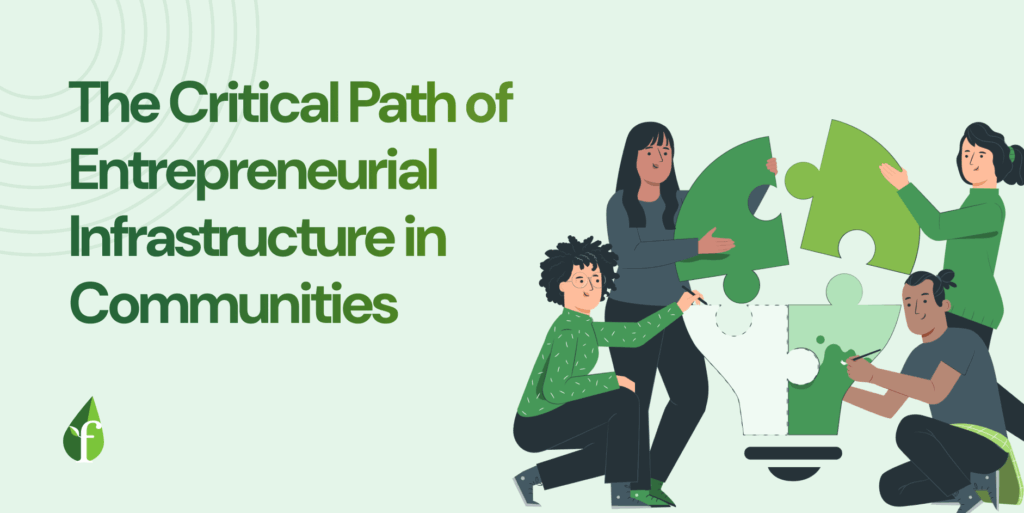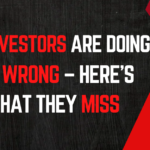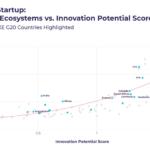
Governments keep insisting they’re “supporting entrepreneurship,” yet the tools they fund are usually the bureaucratic equivalent of a pep rally: innovation hubs with free Wi-Fi, pitch competitions, and motivational speakers who read the same three startup books as everyone else. These things create the appearance of activity but deliver outcomes only for the handful of founders who already know how to navigate venture capital and accelerators. What gets missed is that real entrepreneurial development requires structure: assessment, platforms, and programming that scale, measure, and actually change founder outcomes.
Article Highlights
Most are Making the Wrong Investments
Historically, public funding has gone into three dead ends. First, assessments: governments assume this means venture capitalists screening deal flow or accelerators picking applicants. That’s not assessment, it’s selection bias unfortunately but understandably limited by personal experiences or expectations. Second, platforms: cities spend millions on “community spaces,” convinced that a shiny hub will produce unicorns. What actually happens is real estate providers make money while entrepreneurs show up for the free coffee until the lease runs out – appreciate that what you’re likely doing is drawing those capital resources out of the entrepreneurs. Third, programming: the default model is to import “mentors” who generously repeat what they learned on a podcast. Founders end up with conflicting advice, no structure, and very little to show investors.
Short-sighted governance, token support, and impact oriented to optics not outcomes – time and money while ignoring the research and infrastructure known to meaningful develop entrepreneurs and enduring companies. Local policy must move from gestures to infrastructure with standards of expectation that drive outcomes of economic impact, not starts.
Reallocating Civic Investments in Assessments, Platforms, and Programs
The internet has made it possible to measure, scale, and train founders with precision yet governments still approach entrepreneurship as if it’s a lottery. What they should be demanding are systems proven to change founder outcomes.
In our capacity as Public Officials on behalf of a city or region, we should be oriented to four paths that empower local entrepreneurs:
- Empowering Leaders: Provide your startup ecosystem, startup development organization, and economic development leaders with proven methodologies, tools, and a global network to supercharge your entrepreneurship support capacities.
- Internationalization & Soft Landings: Leverage a global (not just local) network of accelerators, mentors, ecosystem leaders, and investors, that can catalyze your most promising startups and help them make the leap from local start to global innovation.
- Activating New Entrepreneurs: Great startup ecosystems start with great founders but it’s likely that you’re impeding despite your best efforts. You can identify, activate, and empower talented aspiring entrepreneurs to launch companies and grow your economy, we know how so if it’s not working, you’re on the wrong track.
- Accelerating Economic Development: Provide to entrepreneurs free or subsidized access and work with globally established startup organizations to launch a new program customized to the unique needs of your region.
How do we know cities on the wrong track? I’ve been writing a lot about Venture Studios and JT Benton, Co-founder and General Partner at 9point8 Collective just had a wonderful conversation with VC Lab that illuminates, “Regionally focused Venture Studios are a welcome change; they focus on building value where the impacts can be felt in their own communities. This is a critical change, as experience the force of gravity for innovation moving away from the typical capital hubs and instead happening in markets that might have otherwise been passed over.”
I came to this work through public affairs, where every policy pitch, tax incentive, or infrastructure project should answer one blunt question: does it deliver outcomes, or just headlines? I reached this conclusion about local startup ecosystems having worked with startups for nearly 30 years. That same lens is why I joined Founder Institute. I wasn’t interested in another accelerator making noise with demo days and photo ops; I wanted an organization that could prove, with data, that entrepreneurs were being developed at scale and with measurable success.
Track record: More than 8,100 alumni have raised over $1.9 billion in funding, supported by a network of 35,000 mentors and investors across 200+ cities worldwide. They’ve run 9,100 startup events, trained 1,500 local ecosystem leaders, and built a curriculum that works everywhere from Lagos to Lisbon. And the backbone of it all is the Entrepreneur DNA Assessment, a 30-minute psychometric test that’s analyzed 200,000+ applicants and benchmarked results against thousands of companies. It’s continuously refined through regression analysis of real-world performance data; the kind of evidence-based system governments say they want, but rarely demand.
Let me share, because if public investment in entrepreneurship is going to matter, it has to look more like this and less like another innovation hub with free coffee.
Assessments. Founder Institute’s Entrepreneurial DNA Assessment is the most researched example in the market. Built on years of data from tens of thousands of founders worldwide, it doesn’t ask whether someone has a clever idea, it measures the psychological traits most correlated with startup success such self-efficacy, conscientiousness, fluid intelligence, and internal locus of control. Research shows these factors predict entrepreneurial resilience and outcomes more consistently than business plans or capital (whether from pockets, investors, or customers). Other strong assessment models exist; Kauffman Foundation’s work on entrepreneurial ecosystems, Gallup’s Builder Profile, and Entrepreneurial Orientation frameworks in academic literature – FI’s DNA tool is uniquely actionable because it ties directly into training and mentorship platforms.
Platforms. Instead of reinventing “community” every budget cycle, governments should leverage global platforms that connect founders with mentors, investors, and customers in structured ways. We know this works because over the last 15 years or so, most of the cities that have thrived have effectively used social networks (Facebook or LinkedIn) to ensure everyone is connected and as much as possible is promoted – to do that though, requires that local leaders participate, without bias and to effectively keep everyone engaged. Founder Institute’s network is the next evolution of what matters, moving from a social network group to a global platform: thousands of vetted mentors, alumni in over 200 cities, and investors who understand how to calibrate expectations for early-stage companies. Unlike the co-working space that goes dark at 8 p.m., these platforms scale digitally and continuously. Comparable examples outside FI include Startup Genome’s ecosystem research or Gust for investor-founder connectivity, both of which address specific challenges. The point is that platforms should reduce friction, not just provide a stage.
Programs. Governments have long recognized the need to support entrepreneurs, but too often that support has taken the form of events or networking meant to inspire rather than train. Entrepreneur development is not a cocktail-party problem, it’s a curriculum problem. Founder Institute’s program addresses that directly: a compressed, structured MBA for starting companies, with weekly milestones, investor review, and accountability. It’s not a hackathon, it’s a grind, and that’s precisely why graduates raise capital at higher rates and build sustainable companies. To deliver that, governments should expect models that serve the broader funnel while serving where most entrepreneurs live and that’s where FI’s global curriculum and local leadership deliver scalable public infrastructure.
Innovation and Entrepreneurship Matter to your Economy
Every policy institute worth its salt warns that prosperity hinges on innovation productivity, not symbolic gestures. Yet innovation isn’t just R&D credits or incubator leases; it’s the capacity of people to create companies. Without assessments, governments don’t know who those people are. Without platforms, they can’t connect them. Without programs, you aren’t developing them.
Founder Institute has built the missing layer of civic infrastructure – infrastructure more meaningful than roads, spaces, and high speed bandwith: an assessment to identify talent, a platform to connect it, and a program to cultivate it. Governments that plug into that stack get measurable ROI (job creation, capital attraction, and resilient founders) while spending less than they currently burn on “innovation districts” that produce little more than ribbon-cutting ceremonies.
If you’re waking up that something is missing, you’re not alone, notably, recently, Washington, D.C.’s Golden Triangle Business Improvement District and Office of the Deputy Mayor for Planning and Economic Development put in place the Penn West Accelerator under the leadership of Guc Ozenci who has built a portfolio of 40 early-stage companies through his support of Washington DC, Maryland, and Virginia. This is leading the right direction.
Government Work in Entrepreneurship
Governments should think of entrepreneurship the way they think of roads, grids, or water systems: as infrastructure that underpins every other form of growth. Assessments are diagnostics: the entrepreneurial equivalent of inspections, ensuring you know where the real capacity lies. Platforms are networks: the pipes and wires connecting talent, capital, and knowledge. Programs are capacity-building: the treatment plants, substations, and training facilities that convert potential into productive output. And just like physical infrastructure, if any one of these systems fails, the whole economy feels it.
This isn’t abstract. The OECD (Organisation for Economic Co-operation and Development) has shown that countries with robust entrepreneurship frameworks experience higher rates of job creation and SME productivity growth, precisely because policy creates the scaffolding for entrepreneurial talent to emerge at scale. The Global Entrepreneurship Monitor finds that when governments invest in structured training and ecosystem infrastructure, early-stage entrepreneurs are more likely to survive, employ others, and innovate. And the World Bank’s research on entrepreneurship ecosystems has consistently shown that fragmented, event-driven approaches have negligible impact compared to integrated systems of assessment, mentoring, and skills programs.
Beyond Founder Institute, governments can and should support complementary tools and the discussion of Venture Studios, as one of the other better solutions than what I’ve covered here, illuminates how you could and should be investing the right infrastructure for those sectors of your economy where innovators and entrepreneurs are building upon the ecosystem strengths that you have.
Each of these is complementary, not competitive. Together they create a measurable system instead of the fragmented “ecosystem theater” we see too often.
The shift governments need to make is cultural as much as technical or financial, and its policy and partner decisions that create the culture in which entrepreneurs thrive. The internet era has conditioned citizens to expect government services that are measurable, transparent, and effective. Why should entrepreneurship policy be any different? Instead of underwriting coffee and coworking, governments can underwrite assessments that identify entrepreneurial talent in every neighborhood, platforms that connect that talent to capital, and programs that build skills systematically.
Empower leaders, internationalize & provide soft landings, activate new entrepreneurs, and accelerate economic development; let me push this back to you provocatively: if your city’s “entrepreneurship strategy” still looks like a real estate brochure or a conference schedule, what are you really building? Shouldn’t government demand infrastructure that works as hard as the entrepreneurs it claims to support?









Hear hear Paul!
Spot on. As you know, we often say: “It’s not the ingredients—it’s the recipe.”
That line about government-funded “innovation hubs with free Wi-Fi and motivational speakers” really hits. Activity without structure creates the illusion of support, but not the outcomes that matter. The shift from gestures to actual infrastructure, assessment, platforms, and programs that scale is long overdue.
Thanks for pushing this conversation forward with clarity and evidence.
Dan Evans I agree. I keep on saying this. Incubators and accelerators are in the real estate business. WHY? Because they can’t be creative enough to build scalable and money machines while helping startups/innovation to flourish. We need a much better system. One that can turn back on its feet, and it’s really not that complicated.
Dan I like ingredients vs. recipe. The irony is that governments often do put resources on the table, but without structure those inputs just sit there. And to the point about real estate: space is the easiest thing to fund, but it’s also the least catalytic. What moves the needle are systems: assessments that identify entrepreneurial capacity, platforms that connect founders to capital and mentors, and programs that actually build skills.
To echo Kevin, when those pieces are in place, ecosystems don’t just look busy, they produce outcomes that compound. Without them, we don’t have a system. It isn’t complicated and governments should be demanding it.
I really like the roads analogy. A lot of governments in developing countries are fully aware of how important it is to solid road infrastructure and the same applies for entrepreneurship.
Daniyal Ashraf it’s visceral, universal, and cuts through the innovation-policy buzz like a toll-free expressway. Governments get roads. They don’t build fancy billboards and expect cars to grow cars. They invest because roads move things. The same rigor should apply to entrepreneurship.
There’s research to back it up. Take the study?Infrastructure and Entrepreneurship: Evidence from Africa, which found a statistically significant positive effect of transport, electricity, water, sanitation, ICT, and broadband infrastructure on the number of startups across 20 African countries – Roads – enable entrepreneurs to move.
(cc Mooketsi, Bashir, Emmanuel, Larry, Eunice, Catherine, Stanley, Ryosuke, I love this paper, and I’m curious what you think about advancing our idea of “infrastructure”)
https://www.researchgate.net/publication/344348665_Infrastructure_and_Entrepreneurship_Evidence_from_Africa
“Governments keep insisting they’re “supporting entrepreneurship,” yet the tools they fund are usually the bureaucratic equivalent of a pep rally: innovation hubs with free Wi-Fi, pitch competitions, and motivational speakers who read the same three startup books as everyone else.”
This ^^^ … I’m big fan of startup platforms over startup hubs and venture studios over accelerators every day of the week and twice on Sunday. Instead of an out-of-the-box, one-size-fits-all approach, founders need resources that meet them where they are and grow with them.
Tim R. Holcomb Ph.D. most “hubs” are real estate plays dressed up as policy. Platforms and venture studios, on the other hand, scale knowledge, capital, and accountability in ways a building never will.
What also matters is adaptability: ecosystems that can assess a founder’s stage, plug them into the right network, and deliver structured programming calibrated to outcomes. Turn support from symbolic to systemic.
This article feels sponsored by VC Lab. It’s lacking so much depth of the real critical Entrepreneurship infrastructure unless these terms are use to create sensations…
Maybe this article would benefit from defining what an Infrastructure is. And who is it to support. In my view can’t just support founders, but it needs to support consultants, mentors, advisors and investors involved.
Also, something that’s not covered is how fragile most programs are. We can’t just rely on YC, TechStars and FI. We need a true global infrastructure with standardized processes – including selection made DD + ongoing support and that’s super costly.
Finally, VC lab and similar programs are not ecosystem players. Their role is to extract as much value from the founders they back and that’s the game – there is nothing wrong with that – it’s why we investors give them cash. However, when you talk about entrepreneurship infrastructure and put VC lab at the center of your article I can only conclude that we don’t have the same definition of the infrastructure and its role.
An infrastructure must be inclusive and have clearly define goals that serve all stakeholders: governments, VS, TTOs, Incubators, Accelerators and VCs and all their stakeholder
I just subscribed to this newsletter as I’m very deep into startup economics and their ecosystems. I wrote for the UK Gov on the Impact of Incubators and Accelerators in the UK and also was part of the team that triggered Microsoft to invest $500M in Startups ecosystems back in 2018.
The responsibility of this channel is so much so that I could stay silent.
I hope the bar will raise from here as we all need to invest time, money and research to build far more efficient startup economies…
I think the challenge in such infrastructure is that it rests somewhere between LinkedIn/Facebook (by which I mean, everyone is there) and as adopted a platform as conceivable, specific to entrepreneurship. The challenge is that because mainstream social media is too broad to be meaningful and most platforms are too narrow or local to valuable, cities end up just doing their own thing (or worse. nothing).
And yes, that’s because most ecosystems run their own locally built programs dependent on grants and personalities rather than infrastructure and curriculum oriented to outcomes (rather than demo days and pitch events).
Exactly — that’s the gap. Mainstream social networks are too broad to shape entrepreneurial outcomes, and most local programmes are too narrow or fragile to scale.
But if infrastructure is only built this way, it keeps serving the 1% who already know how to access VC and accelerators. A real infrastructure has to be curriculum-driven, standardised, and sustainable — something cities can plug into without reinventing the wheel each time.
Let’s look at a very simple and yet awful thing that happens to most entrepreneurs. We don’t take holidays, we work 15-18 hours per day, 6 days a wee,k and we don’t pay ourselves because we want to maximize the equity growth for our shareholders – the payback?? Most entrepreneurs can’t get a mortgage to buy a property, and if you have kids, you get no paternity leave… How can governments not look into this seriously??
I would love to have you as a guest writer of The Innovation Ecosystem Lab, which is for the specialised community, policy makers and support programmes to push the boundaries of innovation (and regulation) to serve entrepreneurs better.
Kevin sign me up. Let’s dive into a policy issue that we can tackle. I’ll message you.
Like you said, every part of the infrastructure is complementary
If entrepreneurship is treated as theater, the economy pays the price.
Life is theater. Tragedy, comedy, adventure, coming-of-age, romance, dwindling… all in one… lifetime.
I’d say, properly done, entrepreneurship is strapping your feet to a steam catapult. If you can build/fit/fix the wings in time, you can soar. If you cannot… you will be sore. And you probably will say, “yes, may I have some more.”
but they rarely build the entrepreneurial capacity cities need.
Cities need? Only to stay afloat in the warsh. See also Ready Player One (the book very much preferred; the movie didn’t get into the background nearly well enough).
Yet every other civic priority (roads, power, water) relies on systems. Why not entrepreneurship?
Because you don’t know what you need yet and you have no idea what form would be useful to you.
Teh internut and IOT and drones? Only for tech things… and precision agriculture in fields.
Vertical containerised farming? For growing $0.89 head of lettuce? You kidding or what? Gimme limes and soursops and bananas… but those are trees and not-so-compatible with container-farms.
Need a great way to learn mundanities like business and marketing? SBA… and SCORE are good for that. See also Inventors’ associations. But never trust anyone who says it’s easy. Life is pain! Anyone who says different is selling you something (TPB).
Here is a Policy Guide for Cities and States; how to move beyond symbolic programs toward infrastructure that measurably changes outcomes:
Ah, so you too wanna suckle on the government teat…. whatchya gonna bring?
1. Empower Leaders – Equip ecosystem builders and economic development staff with proven tools, methodologies, and networks.
Help me out; the buzzword to fact ratio is way too high. Are you saying we should all have supported WeWork more effectively? But what if you needed a laser lab? For that, GaTech (and most others) have “you can rent us, and even hire students easily” programs — GaTech is called (IIRC and spelling?) Yamacraw…
2. Internationalize and Provide Soft Landings – Leverage global accelerators, mentors, and investors to help local startups scale beyond city limits.
“Support the failures by asking the successful.” Not invalid, but… how does this help in detail and how specifically should it have helped all of the failures? If you’re asking the success to pay for this, you’ve altered the equation — a VC guy invests in 10 things because 2 will die horribly at 100% loss, 4 will break even, 2 will do okay (at a 20–100% ROI)… and 1 or two will be a 10 bagger with 10,000+% ROI. What equation are you trying to get adopted? Plus… eg, ifn’ you ask for equity, you do get to participate on the upside… but how do you stop the government from propping up failures in the hopes they can get their money back (see also container farms)?
3. Activate New Entrepreneurs – Identify and support untapped talent in every neighborhood, not just the usual suspects.
Howzat? Teh usual suspects are bankable and have joined GaTech and Emory accelerators… and everybody can join if they can figure out their arse from a hole in the ground (see any “cohort” or “accelerator” program on the planet from TechSquare [4 in ATL] to Y-combinators to…). But if you can’t make your case properly (ie, “not the usual suspects”) why should anyone believe your promises? Go watch Shark Tank a few times and see the myriad of different reasons to not invest…
4. Accelerate Economic Development – Provide subsidized access to structured global programs tailored to regional needs.
Err… how does “global programs tailored to regional needs” work?
I saw some excellent entrepreneurs over at USVI, but a “cultural landmark marketplace” doesn’t sound like a “global idea”… until it is. I mean, teh internut was just a place for academics and now… it’s a steaming huge pile of… fertilizer. There are many good chunks in there, but… ?
OT3H, like I said the USVI program… to get tourists off the boats and explore the islands and hit the major spots… is very relevant to the islands. A yelp-on-steroids (is yelp still a thing now? or is it just Google-Map’s “not-so-secret source”)… but… those kids (freshmen at USVI university) had a cool thing but they didn’t know why/how PageRank “fixed” Yahoo and nobody there knew what a Markov chain was…
confirms that fragmented, event-driven approaches deliver negligible impact. Integrated assessments, platforms, and programs deliver measurable ROI in job creation, capital attraction, and founder resilience.
Emphasis mine… lest you’re asking for teh government (cities, states, countries) to pick winners and losers and you know they’d hate to be on the losing side so they’re gonna prop up their choices at the expense of everybody else. Be careful in suckling the government teat… it might just turn on you (cf TARP loans, CHIPS act, and Venezuela).
Read the guide: The Missing Infrastructure of Entrepreneurship
Written, sold, and expounded upon by you. That’s not to say its “bad” but… you do believe in yourself.
So… what exactly are you wanting to do? How would the government dole out money (see also Grants or Loans [see also SBA/SCORE])? You decry them leveraging “teh usual experts” (VC’s, accelerators, WeWork) but… not only fail to acknowledge the successes of VCs and accelerators, but also decry universities. — Who judges who is worthy and how?
Then … in the next sections, you extoll VC-collab spaces (different from accelerators how?), collectives and residency things. What’s the new thing here? Who decides who gets to have a residency at The Sphere?
Oh! It looks like you’re wanting the governments to support the VC guys more — a la CHIPS act…
Was Solyndra a good/bad/evil thing and why?
Was the leverage to kill hydrogen as part of TARP good/bad/evil and why?
Should JT Benton be beholden to the US government? How could they not be?
If Kleiner Perkins chose to not-suck-on-the-teat but Sequoia Capital does (yes, this is a mix-n-match from history that is fubarred to illustrate a point) and Sequoia backs one Yahoo (which was doing so very well against a Lycos)… and the government is now therefore invested in Yahoo.
How does a Google get a toehold? Why should a search engine give you the correct answers on the first page — that limits the number of ads you can show?
How much effort will the governments exert on a Sequoia to “make it so we can get our money out of Yahoo?”
Why would anyone invest in Diesel when Otto is a proven engine that works?
Theater? All the world is a stage (Shakespeare & co)…
Love this perspective! Are you working with any local authorities/cities etc on maturing this idea?
very much so. Both my personal passion and technically my job.
Thor, I appreciate the depth. Let me lead with pointing out that I’m talking about startup infrastructure and serving entrepreneurs, I’m a HUGE detractor of the notion that new businesses are the same and that everyone who starts something is an entrepreneur. I also work with the SBA so, too, respectful of SCORE, neither are terribly effective at this stuff. And you’re welcome to disagree with me, I’m not here to win arguments; I’ve never met a startup founder who SCORE to learn business or marketing, and the SBA is actively working to change and distinguish how they serve this (since startups are not the same as Small Businesses).
You’re not wrong to be skeptical about how public money gets spent. The point of my piece isn’t that governments should pick winners, prop up container farms, or double down on failed bets. Quite the opposite: it’s that public investment should focus on infrastructure that everyone can use, not subsidies for a few projects or companies. The problem is substantial that now an exceptional amount of public money gets spent on local coworking spaces, innovation districts, and accelerators, and we’re starting to learn that those haven’t done squat for startups (it’s in the article)
That’s why I lean on the roads/power/water analogy. Governments don’t decide which cars win; they build highways so every driver has the same shot. In entrepreneurship, that translates to three things:
Assessments to map entrepreneurial capacity across the population (so we know where the talent is, not just who’s already in the club).
Platforms that connect founders to mentors, investors, and customers at scale, beyond coffee shops or networking events.
Programs with real curriculum and accountability, so people actually build the skills to launch durable businesses.
SBA and SCORE do cover the basics, and universities do great research, but those aren’t the same as infrastructure that scales to every neighborhood and keeps improving based on data. The Global Entrepreneurship Monitor and OECD have both shown that ecosystems relying only on events and ad-hoc mentoring rarely move the needle on job creation or survival rates; structured programs tied to assessments and outcomes do.
So, this isn’t about “suckling the government teat.” It’s about shifting from theater and fixing their waste, to systems that build broad entrepreneurial (startup oriented) capacity. Governments don’t need to pick winners. They just need to set the stage, so more people actually have a chance that isn’t hindered by what they’re doing.
Amen to this.
I would add that if you are in a science-based ecosystem, (university ajacent with a lot of life-science, engineerring etc kinds of startups,) then there is another resource that is needed that would be #1 on your list in such places: Hard-resource facilities: Co-Labs and Makerspaces / technology centers.
I have been providing lab space to startups around UC Davis for 8 years. 40+ startups, over $130MM in capital raised… and what they really need… is simply affordable lab space… someplace where they can rent a bench on a month-by-month basis.
I spend ZERO time putting on talks, hosting speakers, workshops etc… I just provide low-cost lab space and get the hell out of the entrepreneurs’ way. They are entrepreneurs.. if they have what it takes… they will self-teach themselves everythign they need anyway.
Our “networking program” consists a weekly meetup at a local brewery… no adjenda, no speakers…. just an open invite for people to come share a beer at the end of the week.
Tim Keller science-based ecosystems have a different baseline requirement. Without access to wet labs, prototyping facilities, or specialized equipment, you don’t even get the chance to test whether the entrepreneurial spark can catch. What you’re doing around UC Davis is exactly what I mean by infrastructure: you’ve built the equivalent of the “roads and water” system that lets companies exist in the first place.
I’ve been pushing on Venture Studios (here and in other articles), given that different type of infrastructure requirement
The fact that 40+ startups out of a shared lab setup proves the model. It also illustrates something policymakers often miss: talks and pitch nights can’t substitute for the hard assets some sectors need. In biotech, that’s bench space; in advanced manufacturing, it might be fabrication centers; in other fields, digital platforms or mentor networks play the same role.
Governments should be asking how to provide both kinds of infrastructure: physical where it’s critical, and structured platforms/programs where it’s about skills and connectivity.
Love this insight from Paul O’Brien. Also very grateful for his mention of my recent interview with the fine folks at VC Lab in the article.
Appreciate that, JT. Your interview with VC Lab nailed the point I’ve been trying to make here; that if we want founders to get funded, we need venture design and civic infrastructure working in sync. Too often those conversations happen in separate rooms. Glad we were able to connect the dots and I think your perspective is one a lot more policymakers need to hear.
Thank you Paul – you’re the best. Keep pushing!
Love this. Have you considered posting it as an article on LinkedIn? More likely to find a government official in alignment that way. Lots of States, universities, or large organizations might want to support a local Venture Studio.
Aran oh yeah, I run a newsletter there. Pretty good discussion going on so jump in: https://www.linkedin.com/pulse/missing-infrastructure-entrepreneurship-policy-guide-cities-o-brien-a98qc/
Profile photo for Thor Johnson
Thor Johnson
· 12h
I can see that…
Sorry, the news about Intel is just rubbing me the wrong way. IMHO, if we’re supposed to set up a sovereign fund, it should be an index fund, but ya know… I can already invest in index funds and I don’t know why the government should. Last I heard, that was the whole quantitative easing shite and I didn’t care for that much either….
I’m just not sure how what your proposing is different from SBA/SCORE/Urban League. We did do some of that with the Southeastern Inventors Association, but… we never quite hit a stride, but the best things we did were people presenting how they did it (we had a NatGeo photo woman and she said she went to college to learn business because she could do the photography) or “investor gauntlet bootcamp” (a la Sharktank for no dough). I see all the WeWork and Incubators and such and… I’m not certain why the governments would be better or more accessible.
Still missing the point, in fact, in the complete opposite direction.
Government isn’t better. I’m not even remotely saying that. So let’s round one another – my post has nothing to to do with the U.S., Intel, or businesses.
Not seeing how SCORE and the SBA are different?
Try this…
Was Uber a new business or a startup?
You can say both, but then what makes a new taxi business distinct from what Uber was?
How to was Uber different from a new carpool parking lot, a town car service, or Yellow Cab franchise? The last three are new versions of known and existing business models. Uber WAS distinctly not that. We call that a startup.
SCORE and the SBA tend to be perfectly capable helping people start new businesses. They really don’t have a clue to contribute when it comes to a Blockchain based AI that automated account (for example, a startup)
Now, no one is is saying the government is better at any of that.
If you read my article and not just my post, you’d see that I’m clearly saying that what governments do now (underwrite Accelerators, give grants to startup spaces, or provide tax incentives to innovation districts) isn’t working. Is NOT working.
That doesn’t mean governments can’t do something meaningful, it means that what they’re doing now is wasteful. We know this because despite all the cities and states trying to support startups in that way (and even allocated funding to startups) the rate of success has not changed.
By the way, this has nothing to do with Intel. Nothing. Not even remotely.
So, governments do fund/support stuff now, and it doesn’t work well.
My article aggregates the research about what does work. We know this. So again, not arguing with you, I don’t care what you believe and I’m not even making a claim, I only pulled together the research (cited) which shows that IF/WHEN governments fund infrastructure, which I’ve pointed out is education and platforms for assessing and connecting people, then, we KNOW entrepreneurs are more successful.
With me?
In short, Government funds a startup now, or they support some “Accelerator.” That doesn’t work. What we know works is funding infrastructure (analogous to roads, public schools, or broadband Internet) enables entrepreneurial innovate through startups.
I’m with you, but just as the difference between uber and a taxi wasn’t so obvious to some (IMHO, use of phone tracking for safety lets them legitimately bypass 99% of the existing taxi regulations — it an app that lets “normal people” hobnob as taxi-drivers and shouldn’t be regulated like taxis because the app enforces “no scamming” and “no kidnapping”)
I’m having a hard time seeing what “infrastructure” is beyond… accelerators + colleges + SBA + SCORE + Internet + Makerspaces + Libraries.
That’s the whole point of a MBA – to figure out what fungible means and what unmet demand is and… then you can make an Amazon for books… and know that a big key is gonna be letting customers write reviews that are more trustworthy than rando-dude-11282…
But MBAness doesn’t enhance creativity – it merely focuses it…
Unfortunately (imho from the inventors association), half the people think that they should be paid for ideas (nope. You need execution.), half the remaining actually try to implement the idea but have no focus and ride off madly in all directions at once, and half the remaining brutally implement the idea in such a way that nobody wants in order to monetize it more (see also subscriptions for heated seats and now the one from VW for EV performance).
SCORE/SBA seem to be decent about “how to make a defined business profitable” but aren’t good at all at the definition of new and why it matters…
Maybe I’ve never met a good coach?
The ones I have met (including the accelerators) are very good about delivering a side MBA [focus] and a task list to be done [execution] and were pretty good, but… I never saw them able to turn around the 5/8 of the bad ones (the madly off in all directions at once can usually be cornered by “doing the work” and “setting the direction”).
Then again, that’s kinda what I call a good coach… just like the PT guy at the gym… he tells you what you need to do and why and… well, it’s up to you to actually do it or fade.
I’ll take the test and see where it leads… I’m just not seeing this as new (then again, Atlanta seems to have a vibrant community of ridiculous pieces ; where I grew up [Panama City], you couldn’t get anything done. And you still can’t.), but that might just be because… I’m not where you’re trying to target this idea (though the LinkedIn talked about DC… which should have about the same weird array of parts as Atlanta (but maybe not. DC is a strange place).
I’ve worked startups all my life (industrial, telecom, environmental, medical, environmental [again], industrial [again], and looks like medical [again])… and the biggest problem is conversion to an ongoing business practice. They each had a “good idea” [IMHO] that could sell a little in the market… but have all failed because something hit them… expectedly or unexpectedly. Most of them should’ve expected it as the thing that hit them was ‘standard business practice” in that field … and I warned them what was going on but… as no-man-on-totem-pole…
OT3H… I have many hobbies, but converting them to a paying job in the manner to which I am paid nowadays… aye, that’s the trick, eh? Just your average CNC of all things, metal caster, CAD/CAM/3d printer, inventor, etc.
But most of my ideas… have target audiences that are too small to make a sustainable business unless and I don’t know what the unless is, but I think Slant3D has some hints…
Entrepreneurship education needs to be as accessible and as prestigious as other professional education (e.g. medical MD, accounting CPA, banking/corporate MBA, lawyering JD, academic PhD). Entrepreneurship is the lifeblood of any growing economy and needs to be fully recognized as such, and not dismissed as only unexciting SMBs or obnoxious tech bros. Start-up infrastructure investment should provide a platform for making any talented youngster want to be a founder first. Even if they fail (and most will) the lessons learned are invaluable in their secondary career.
How about an MBC, master of business creation? Then build the infrastructure around those graduates, who’s first priority is to start a start-up. (And funding options including bootstrapping, seedstrapping to an M&A exit, or, ultimately, scaling VC ahead of an IPO, would be one compulsory credit. That way MBC founders could talk to VCs as equals or superiors, rather than as beggars.)
Steve Jennis it’s frequently discussed that such a thing should exist for VC. Education of some kind, at least, since most VCs are either just wealthy, financial professionals, or former founders (only the last has any credible business advising startups). Cc Cody Todd
Thanks for sharing, some good nuggets. I don’t agree on everything mentioned here but I do believe the “3 T’s” make the most impact on the entrepre-curious, budding first-time founders, and struggling early-stage startups.
Time, Talent, and Treasure are the keys for any entrepreneurial community and ecosystem to be “successful”. The more you have of each, the better.
Content is everywhere (e.g. LinkedIn Learning, YouTube, Reddit, Quora, Universities, Libraries, etc.). The scrappy self-starters can (and will) find the content they want (maybe not what they need)…programmatic structures do help this, but ultimately it’s the accountability, mentorship, and connections that put a business on the path to success!
FI is one of several options for an ecosystem, and it’s the founders who will judge which resource is the best fit. I haven’t seen a single accelerator or studio that can replicate the same thing to every market in the same manner. Yes, there are some basic structures that must be included in any city/state/regions recipe but it take Time, Talent, and Treasure from multiple sources, people, partners, alumni, investors, skilled workforce, welcoming communities, governments, and institutions to make the magic come to life.
Doug Applegate I think you’re right on the “3 T’s”: without Time, Talent, and Treasure, no ecosystem holds together. What I’d add (and what I’ve been trying to get governments to recognize) is that those ingredients still need structure to work at scale. Left on their own, they tend to pool in familiar places: the same people, the same networks.
Where I’ve seen the breakthroughs is when ecosystems add diagnostic tools, connective platforms, and programmatic accountability that broaden access (or increase value in providing them: ROI) to those 3 T’s. That way, the scrappy self-starters you mentioned don’t just find content, they get plugged into a system that converts curiosity into capacity.
I’d love to compare notes on how you’re seeing this play out at Purdue. Universities are often sitting on incredible reservoirs of talent and treasure, and I think there’s a real opportunity to align that with broader civic infrastructure so the “entrepre-curious” get a straighter path into the ecosystem.
Wow – this post hit a nerve (in the best way).
That line about public funding creating headlines not outcomes? That stung, because it’s so accurate. The number of polished “innovation hubs” I’ve walked into, only to find whiteboards and warm coffee but zero strategy or accountability… painful.
According to the Global Entrepreneurship Monitor, over 50% of early-stage entrepreneurs globally cite lack of training and mentorship as their biggest barrier to growth:
https://www.gemconsortium.org
My experience with too many innovation spaces is going to an event panel, where the discussion is inexperienced, misleading, and distracting. And I find that that is why so many entrepreneurs continue to cite that they’re seeking training and mentorship; that, despite a city *thinking* they have that in place and that they’re providing it (because of their support of that hub) – the local community and programming isn’t delivering. It’s theater that looks good, except to those doing the actual work of a startup.
Infrastructure is key.
Investing into a building to be a hub does not and will never provide outcomes.
It’s just space to remind us what we could have done but chose not to do.
Space can be a backdrop, but without programming, mentorship, and capital it’s just a monument to missed opportunity. The ecosystems that thrive aren’t the ones with the prettiest buildings, they’re the ones where founders get customers, capital, and collisions that actually change behavior. Infrastructure isn’t drywall, it’s the systems that lower friction and accelerate outcomes. Thank you for sharing this Sheffie!
Thank you for sharing your thoughts Alberto Onetti! I see your point, but I believe accelerators like our London GreenCity and Greentown Labs are vital for innovation. They offer a great mix of prototype space, mechanical/ electrical room and mentorship, creating a supportive environment for startups. While venture studios have their benefits, the community aspect of accelerators is really important.
Laith Anezi That’s a fair point, the kind of community and prototyping infrastructure you describe at London GreenCity and Greentown Labs is hugely valuable. Those resources are critical for founders and often missing from “program-only” accelerators, which is really what my critique is aimed at (coincidentally, I’m working on a study of Hard Tech, which is similar in that regard)
The distinction worth making is that studios and accelerators aren’t mutually exclusive. Studios are about building companies from the ground up with ownership, shared teams, and capital. Accelerators that provide space, labs, and community can complement that model by lowering barriers for experimentation and early validation – IF THEY DO.
Maybe the question isn’t accelerators or studios but how we align the strengths of each so that regions invest in outcomes. Curious if you’ve seen that balance work in practice at Greentown and GreenCity?
A lot of truth in it, but the accelerator spectrum is broad. Just like there are a lot of crappy VCs, there are a lot of crappy accelerators. I am not sure if you should just bunch all of them together. And just because your local accelerator is not attracting the attention of VCs doesn’t mean it’s failing it’s purpose as an engine for innovation.
Yep, agree and disagree. For sure quality is not the same… though the accelerator model is a bit stale….
Robert Jan van Vugt The spectrum point is well taken but that’s actually the problem.
Because we’ve let “accelerator” become a catch-all term, the quality bar is all over the place. Some programs provide real infrastructure and sector depth, others are little more than event calendars and pitch coaching. That lack of definition is why so many are underwhelming and why cities keep funding “accelerators” that don’t move the needle.
If accelerators are going to be credible engines of innovation, we can’t afford to let the spectrum be that broad. Standards, accountability, and clarity of purpose matter, or else we just keep subsidizing theater.
By what measure is an accelerator an engine for innovation?
Without proof of impact, accelerators disappear. Or morph into something else. It’s the same for consulting, VCs, marketing agencies, etc.
Sander van der Blonk except for the fact that many of them are supported by the public sector – civic or government funding, incentives, and support, keep a lot of junk afloat.
Hi Alberto Onetti and Paul O’Brien. I’ve been working on transfer since 5 years, and I still see a lot of confusion on these topics. The combination of lack of real knowledge of the innovation process (at all levels) + the availability of hundreds of programs makes developing regional capabilities very complicated. Too much distraction and noise. I wrote about it on my blog Deep-Tech 4 Dummies here: https://www.notion.so/deeptechstartups/Welcome-to-the-Innovation-Circus-a336c0d2c704415ba97388567859e20b
Federico Micol exactly the challenge. Without clarity on process and purpose, the abundance of programs just dilutes impact. Appreciate you sharing your piece, I’ll give it a read.
That’s why I’ve been building Ozcorp Scientific , a lean venture studio and holding co to engineer deep tech digital-first ventures. I’m a software guy expertly collaborating with wetlab and hardware people. Happy to DM and explore collabs with anyone!
Dr. Osvaldo D. R. deep tech needs exactly that kind of cross-disciplinary collaboration. Would be great to hear how you’re structuring the studio side to keep it lean while bridging software, wetlab, and hardware…. I’m working on a deep tech piece right now.